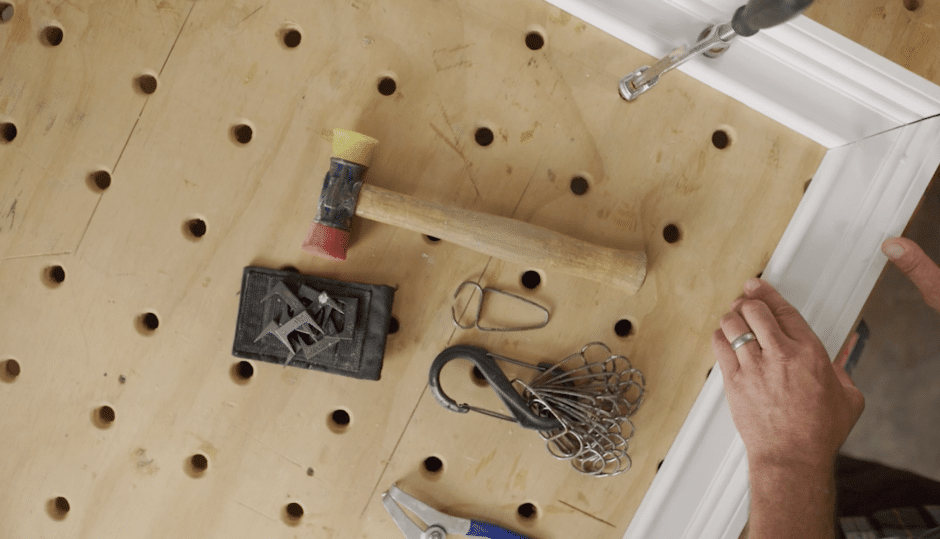12 Popular Construction Trade Careers
Jan 07, 2022

A trade career is one that requires a specialized skill set developed through years of training and hands-on experience. Instead of earning a traditional college degree, tradespeople might complete a certificate program at a vocational school. Depending on the type of trade job, tradespeople can also learn everything they need to know through on-the-job training, rather than enrolling in a formal degree program.
Salaries and pay in the trades is usually commensurate with the level of specialized knowledge you have. A career in the trades might also lead you down an entrepreneurial path: You could open your own business and bid on construction projects that fit your expertise. Discover a wide range of trade careers that could end up being your dream job.
12 popular trade careers
Building trades
Professionals in the building trades can follow a number of career paths, each of which requires a different degree of education and experience.
1. Carpenter. Carpenters primarily work with wood. There are multiple types of carpentry, from framing to finish carpentry. While framers work on a large scale—framing houses—finish carpenters focus on detail, transforming a raw space into a finished interior.
- Median pay: According to the Bureau of Labor Statistics (BLS), the median pay in 2020 for a carpenter was just under $50,000.
- Training requirements: Apprenticeship
2. Electrician. As an electrician, you may be responsible for installing or repairing electrical lines, as well as interior power, lighting, and communication systems. Electrical engineers are part of “MEP”—mechanical, electrical, and plumbing.
- Median pay: $56,00
- Training requirements: Apprenticeship or vocational school; state license also required
3. Insulation installer. Insulation installers remove old insulation and replace it by measuring, cutting, and installing new materials. Most work is done indoors.
- Median pay: $45,820
- Training requirements: Apprenticeship
4. Heavy equipment operator. This trade school career involves operating heavy machinery on construction sites.
- Median pay: $49,100
- Training requirements: Apprenticeship or vocational school
Mechanical trades
There are a number of specialties you can pursue within the mechanical trades, which generally involve installing, maintaining, and repairing different types of mechanical systems. It’s an ideal path for people who love to figure out how things work and why they break.
5. HVAC technician. HVAC technicians repair and install heating, cooling, and refrigeration units, either on a residential scale or a commercial one.
- Median pay: $50,590
- Training requirements: Vocational school; state license also required
6. Industrial machinery mechanic. This type of mechanic works on large machinery utilized in factories and other industrial locations. Interestingly, the job outlook through 2030 is well above average for other industries; it’s set to grow at a rate of 19% compared to a general job growth rate of just 8%.
- Median pay: $54,920
- Training requirements: Apprenticeship
Industrial trades
Here is a trade school careers list of jobs that can be done either in construction or in an industrial setting.
7. Ironworker. Ironworkers build structural supports and frameworks for roads, bridges, and buildings.
- Median pay: $53,210
- Training requirements: Apprenticeship
8. Line installer and repairer. There are a few different specializations you can choose from as a line installer and repairer, including electrical and telecommunications lines (like fiber optic cables).
- Median pay: $68,030
- Training requirements: Apprenticeship or vocational school
9. Sheet metal worker. Sheet metal workers fabricate things out of thin metal, typically either on construction sites or in a factory.
- Median pay: $51,370
- Training requirements: Apprenticeship or vocational school
Plumbing trades
The plumbing trades include three categories of jobs: plumbers, pipefitters, and steamfitters. Each area focuses on lines that carry different types of materials. The median salary for all three is $56,330.
A trade career is one that requires a specialized skill set developed through years of training and hands-on experience. Instead of earning a traditional college degree, tradespeople might complete a certificate program at a vocational school. Depending on the type of trade job, tradespeople can also learn everything they need to know through on-the-job training, rather than enrolling in a formal degree program.
Salaries and pay in the trades is usually commensurate with the level of specialized knowledge you have. A career in the trades might also lead you down an entrepreneurial path: You could open your own business and bid on construction projects that fit your expertise. Discover a wide range of trade careers that could end up being your dream job.
12 popular trade careers
Building trades
Professionals in the building trades can follow a number of career paths, each of which requires a different degree of education and experience.
1. Carpenter. Carpenters primarily work with wood. There are multiple types of carpentry, from framing to finish carpentry. While framers work on a large scale—framing houses—finish carpenters focus on detail, transforming a raw space into a finished interior.
- Median pay: According to the Bureau of Labor Statistics (BLS), the median pay in 2020 for a carpenter was just under $50,000.
- Training requirements: Apprenticeship
2. Electrician. As an electrician, you may be responsible for installing or repairing electrical lines, as well as interior power, lighting, and communication systems. Electrical engineers are part of “MEP”—mechanical, electrical, and plumbing.
- Median pay: $56,00
- Training requirements: Apprenticeship or vocational school; state license also required
3. Insulation installer. Insulation installers remove old insulation and replace it by measuring, cutting, and installing new materials. Most work is done indoors.
- Median pay: $45,820
- Training requirements: Apprenticeship
4. Heavy equipment operator. This trade school career involves operating heavy machinery on construction sites.
- Median pay: $49,100
- Training requirements: Apprenticeship or vocational school
Mechanical trades
There are a number of specialties you can pursue within the mechanical trades, which generally involve installing, maintaining, and repairing different types of mechanical systems. It’s an ideal path for people who love to figure out how things work and why they break.
5. HVAC technician. HVAC technicians repair and install heating, cooling, and refrigeration units, either on a residential scale or a commercial one.
- Median pay: $50,590
- Training requirements: Vocational school; state license also required
6. Industrial machinery mechanic. This type of mechanic works on large machinery utilized in factories and other industrial locations. Interestingly, the job outlook through 2030 is well above average for other industries; it’s set to grow at a rate of 19% compared to a general job growth rate of just 8%.
- Median pay: $54,920
- Training requirements: Apprenticeship
Industrial trades
Here is a trade school careers list of jobs that can be done either in construction or in an industrial setting.
7. Ironworker. Ironworkers build structural supports and frameworks for roads, bridges, and buildings.
- Median pay: $53,210
- Training requirements: Apprenticeship
8. Line installer and repairer. There are a few different specializations you can choose from as a line installer and repairer, including electrical and telecommunications lines (like fiber optic cables).
- Median pay: $68,030
- Training requirements: Apprenticeship or vocational school
9. Sheet metal worker. Sheet metal workers fabricate things out of thin metal, typically either on construction sites or in a factory.
- Median pay: $51,370
- Training requirements: Apprenticeship or vocational school
Plumbing trades
The plumbing trades include three categories of jobs: plumbers, pipefitters, and steamfitters. Each area focuses on lines that carry different types of materials. The median salary for all three is $56,330.
10. Plumber. As a plumber, you install and repair water and potentially gas lines in either homes or commercial buildings (or both). This could include bathroom fixtures, septic tanks, kitchen appliances, and water heaters. Once you have enough experience, you can take an exam to become a master plumber.
- Training requirements: Vocational school; state license also required
11. Pipefitters and steamfitters. This specialization involves fitting lines that carry chemicals, gases, or even acids. You’ll work in commercial and industrial environments, rather than in residential areas.
- Training requirements: Vocational school; state license also required
Construction management
12. Construction manager. A construction manager oversees the work, budget, and progress of construction projects. They also manage subcontractors and collaborate with the project’s architect and engineer. Time is usually split between an office and the job site. The median pay is $97,180.
- Training requirements: Bachelor’s degree and on-the-job training
3 benefits of a trade career
Opting for a career as a skilled tradesperson comes with a number of benefits.
1. Get into the job market quickly. Most trade careers offer on-the-job experience to get you prepared. Whether it’s a formal apprenticeship with a master tradesperson or a company training program, a two-year investment is often the maximum amount of time you’ll need to amass a solid skillset.
And for those jobs that require a certificate from a vocational school, you can also typically graduate from the program within two years. That’s a minimal time investment, especially since training programs are typically paid as well. You get to jump headfirst into your new career while simultaneously learning the skills you need.
2. Good pay. Trade school careers often come with a good starting salary and room for growth, especially considering the fact that you usually don’t need a college degree. The median salaries on our list ranged from around $45,000 up to nearly $100,000. Compare that to the average pay of a typical high school graduate with no additional education—their median salary in 2019 was just under $39,000. Plus, as you grow in your career, you’ll get paid more and potentially even start your own business to set your own rates.
3. Honing a specific skill set. Becoming a tradesperson allows you to master a craft and truly excel in what you do. If you love to solve problems and work in a new environment every day, then this is definitely an area worth pursuing.
Whether you want to focus on a specific type of system in residential homes or want to work on the forefront of industrial machinery, there are countless opportunities to find something that you’re passionate about. Get ready to pursue a trade career for a dynamic work environment—it could end up changing your life.
MT Copeland offers video-based online classes that give you a foundation in construction fundamentals with real-world applications, like interior finish carpentry. Classes include professionally produced videos taught by practicing craftspeople, and supplementary downloads like quizzes, blueprints, and other materials to help you master the skills.






